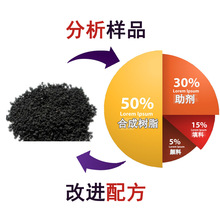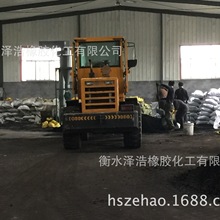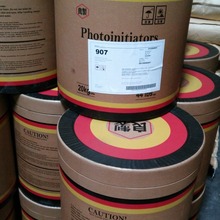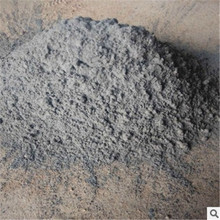EAT's Si+ lightweight hydrogen powder: Your questions answered
Hydrogen transport and generation powder Si+ was revealed last week, causing quite a stir with its promise of making renewable energy incredibly cheap, convenient and safe to transport – in stark contrast to the expense, inefficiencies and difficulties involved in transporting hydrogen as a gas, a cryogenic liquid or embedded in ammonia.
Much of the world seems to be coalescing around green hydrogen as a clean way to store, transport and export renewable energy, but as we outlined in another piece last week about a hydrogen storage powder developed by scientists at Australia's Deakin University, the high costs involved in compressing and containing the gas, cryogenically cooling and storing the liquid, or converting it to ammonia could place a heavy thumb on the cost scales. The green energy transition can't happen if the costs are so high that economies can't bear their weight.
Enter the solid-state hydrogen powders. Whether it's Deakin's ball-milled boron nitride or EPRO Advance technology (EAT)'s porous silicon, these powders can effectively transport green energy using cheaper and much more conventional means. Fill a truck or a shipping container with either, send it on a regular cargo boat, and somebody at the other end can use it to release hydrogen, ready to go.
Deakin's solution requires heat for the hydrogen release, EAT's Si+ product requires water and sodium hydroxide. Both offer a zero-emissions pathway, and leave the user with by-products that are either recyclable or potentially useful. And both claim to be radically cheaper than pure hydrogen, particularly when transport and storage costs are factored in.
EAT's Si+ powder is claimed to offer a higher density of energy storage per weight than the Deakin powder, and once combined with alkaline water to produce its hydrogen, it leaves nothing behind but silica, which can be sold off to make concrete. So it's of particular interest.
Naturally, you had questions. We did too, so to follow up from our original piece, we contacted EAT Executive Director and CEO Albert Lau over email. We put the following questions to him, and present Lau's answers below, in an edited format.
(责任编辑:产品中心)
 Blinken condemns Russia
Blinken condemns Russia Global media bows to 'King' Pele
Global media bows to 'King' Pele Bumpy electrode makes for smooth battery operation at sub
Bumpy electrode makes for smooth battery operation at sub Satellite power grid would beam energy around the globe just like data
Satellite power grid would beam energy around the globe just like data CrowdStrike outage is still causing hundreds of flight cancellations daily
CrowdStrike outage is still causing hundreds of flight cancellations daily
- Gastro Obscura's Guide to Where to Eat in Nashville
- Mbappe dismisses Martinez's World Cup taunts
- Perovskite
- How to make a Negroni with Stanley Tucci, a highly soothing video
- Webb scientists haven't found a rocky world with air. But now they have a plan.
- Rogue None: Why the Force isn't with Star Wars at the Oscars
- Korea to expand use of drones to delivery, life
- Shiffrin goes 'full gas' in Semmering
-
Number Representations in Computer Hardware
 Welcome to arguably the most fundamental component of computer design: how numbers are represented i
...[详细]
Welcome to arguably the most fundamental component of computer design: how numbers are represented i
...[详细]
-
Zverev crushed by Fritz at United Cup
 SYDNEY:Struggling former world number two Alexander Zverev crashed to a second straight defeat of th
...[详细]
SYDNEY:Struggling former world number two Alexander Zverev crashed to a second straight defeat of th
...[详细]
-
 寻找乡间好声音!2024广东乡村歌手大赛等你来丨赛事指南②_南方+_南方plus梦想之声,燃情招募!2024广东乡村歌手大赛闪耀启幕无论你是城市中的音乐家,还是乡村里的歌唱爱好者,无论你的职业是什么,
...[详细]
寻找乡间好声音!2024广东乡村歌手大赛等你来丨赛事指南②_南方+_南方plus梦想之声,燃情招募!2024广东乡村歌手大赛闪耀启幕无论你是城市中的音乐家,还是乡村里的歌唱爱好者,无论你的职业是什么,
...[详细]
-
Satellite power grid would beam energy around the globe just like data
 Emrod has just demonstrated its wireless power beaming technology to Airbus and the European Space A
...[详细]
Emrod has just demonstrated its wireless power beaming technology to Airbus and the European Space A
...[详细]
-
Foreign, multicultural students rise amid declining school population
 (Getty Image)The number of Korean students in kindergarten, elementary, middle and high school natio
...[详细]
(Getty Image)The number of Korean students in kindergarten, elementary, middle and high school natio
...[详细]
-
Satellite power grid would beam energy around the globe just like data
 Emrod has just demonstrated its wireless power beaming technology to Airbus and the European Space A
...[详细]
Emrod has just demonstrated its wireless power beaming technology to Airbus and the European Space A
...[详细]
-
Oil prices are negative and nobody is really sure what that means
 As the coronavirus pandemic stretches into 2020, the cost of crude oil plummeted to less than $0 per
...[详细]
As the coronavirus pandemic stretches into 2020, the cost of crude oil plummeted to less than $0 per
...[详细]
-
Mean NASA frozen yogurt robot makes a small girl cry
 NASA: where you can check out the uses of liquid nitrogen, purchase your very own star map and estab
...[详细]
NASA: where you can check out the uses of liquid nitrogen, purchase your very own star map and estab
...[详细]
-
Pope says England are not 'one
 MANCHESTER:England stand-in captain Ollie Pope said the team's cautious but successful run-chase
...[详细]
MANCHESTER:England stand-in captain Ollie Pope said the team's cautious but successful run-chase
...[详细]
-
What it's like to be polyamorous during the coronavirus quarantine
 "If you’re stuck in quarantine with one of your poly partners, and you won’t be able to
...[详细]
"If you’re stuck in quarantine with one of your poly partners, and you won’t be able to
...[详细]
Campbell highlights Washington Declaration amid security concerns over Putin

“充电”5天,拥抱时代!翁源县新型农业经营主体能力提升培训开班

- I used the Pixel 9 Pro XL in the shower — does the screen work when wet as claimed?
- Algae biopanel windows make power, oxygen and biomass, and suck up CO2
- Meryl Streep's hilarious reaction to that Oscars mix
- Nicki Minaj and Remy Ma are beefing right now and dear god nobody was ready for all the shade
- Korea's economy to stop growing without drastic labor change: FKI
- Singapore's Ministry of Defence suffers its first successful cyberattack
- N. Korea celebrates completion of building more new homes in Pyongyang
